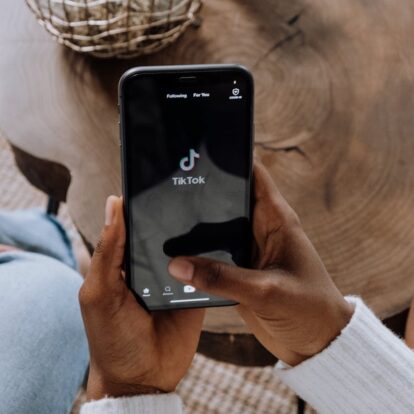The evolution of social media in the age of AI: From memes to machine learning
Social media
19 Sept 2025

Simply put, the definition of social media is a form of online communication that is used by people to create communities, networks and collectives to share information, messages and various other content.
Birthed from the invention of internet technology, social media has transformed the way we connect, share and consume media. What began as different channels to communicate on, has now shifted into another avenue for businesses to build their digital advertising empires on.
Most businesses now utilities social media to expand their brand awareness and build loyal communities. Content creation in itself has matured into an industry of its own, shaping how we interact with entertainment, culture and the news.
The evolution of social media
Social media has made communication and connection more seamless and convenient. Myspace was one of the first social networking sites to surpass a million active users back in 2004. In contrast, TikTok, which launched in 2016, reached a staggering one billion users in less than two years.
Every single social media platform has evolved and reinvented itself since its origination – X being the biggest example. What started off as Twitter, a microblogging platform (with a character limitation) has now become X - an all-compassing app which can offer everything apart from just social networking. The ambitious shift was led by controversial owner Elon Musk. Today, the most popular social media platforms such as TikTok, Instagram and Facebook have rewritten the rules, with short-form video content dominating each platform. Today, memes, reels and viral trends spread faster than any post could have a decade ago which shows the rapid pace at which we consume and engage with social media content.
The shift from communication tool to commercial ecosystem
The evolution from communication to a prolific commercial ecosystem has been instrumental in creating a direct channel between businesses and consumers. Social media began as a tool to create and maintain relationships with familiar and unfamiliar people.
Today, it is not just a social networking tool, it’s a marketplace and the backbone of digital commerce. From targeted advertising and influencer collaborations to in-feed shopping elements, social media is the most powerful marketing device available to businesses.
Done correctly, it bridges the communication gap between the business and the consumer, as it provides businesses and consumers with a direct channel for interaction and engagement. By leveraging social media platforms, businesses can enhance their credibility and trust while also attracting new customers.
The rise of content creators has led to significant change, especially for B2C businesses as more and more brands utilise influencers to market their products and services to new demographic groups. Without social media, influencer marketing would not be possible. Social media platforms give many individuals the power to influence their unique audiences. From a business perspective, influencer marketing has proven to be more cost-effective than creating and launching traditional advertising campaigns.
The increasing growth of social media’s reach
Global WebIndex has reported that 63.9% of the world’s population uses social media with an average daily usage of two hours and 21 minutes, as of early 2025. Due to the large-scale use of social media today, it is the best medium to reach audiences over any other traditional channel could potentially offer.
Every single platform, from LinkedIn to Reddit and YouTube, is a portal to reach a diverse and global audience. It’ is no longer an opportunity, social media is now a necessity for brands to stay relevant and advertise on, in an oversaturated and crowded marketplace.
With half of the world using at least one social media portal, the power and reach of social media advertising has exploded exponentially. With higher conversion rates, lower costs, improved brand awareness and loyalty, social media has become indispensable. Furthermore, paid ads aside, User-Generated Content (UGC) is also a valuable asset for businesses as it encourages customers to share their experience and opinion related to the brand. This not only improves brand awareness but also solidifies loyalty and trust.
How is AI used in social media?
Artificial intelligence, also known as AI, plays a crucial role in almost every industry in today’s digital age. AI is currently shaping the landscape from suggesting and creating personalised content, to automated video editing, image creation and devising copy for social media captions too.
What made social media stand out from traditional media was that the content was entirely user-generated but now, with the revolution of AI, it has started shifting towards machine-driven creativity. Now, algorithms control what content gets seen by which specific user therefore proving it’s dominance over each user’s content consumption.
Many social media platforms benefit from the use of AI integration, with Facebook being one of the first social platforms to adopt AI to enhance user experience. AI suggests friends and content to users based on their behaviours and interactions on the platform. X relies heavily on AI to personalise each user’s feed, displaying posts that match their interests and also generates replies during user interactions.
TikTok and Instagram also use AI to refine user algorithms, ensuring that content on the Explore and For You pages is tailored to individual preferences. Users of Instagram can now even use AI to rewrite story captions – with the app offering to adjust your captions via Meta AI with options to make it funnier or more ‘absurd’.
The upside and downside to AI for businesses
New technologies allow increased efficiencies, often reducing the need for manual tasks. For example, AI streamlines processes and saves time by automating routine work. On the other hand, it raises multiple challenges as it blurs the lines between what’s real and what’s artificially generated – with fake images, voices, and posts being created, concerns of credibility and creativity are increasingly being raised. In the coming years, striking a balance between AI and organic social media posts will be the real challenge.
For businesses, one of the biggest advantages of AI includes its ability to analyse audience sentiment enabling marketers to understand their consumer’s needs and interests, while identifying new business opportunities based on current trends.
Moreover, AI is crucial for customising brand strategies. AI-powered social media advertising uses data from previous campaigns to target ads according to your demographic’s preferences, effectively reaching the right audience. This approach increases engagement, generates leads, and ultimately converts prospects into customers, resulting in a higher ROI.
How social media will change in the future
Social media has already evolved drastically from being a communication tool to becoming a search engine, shopping feed and entertainment portal all in one. But with the integration of AI and SEO, users will be able to access information, products and services faster than ever before. And because of this, it is crucial for businesses to adapt existing strategies to optimise themselves not only for search engines but also for social discovery.
Social media is constantly evolving, and it’s essential for your business to stay ahead of the curve. Our team of social media experts will help you break through the noise with tailored strategies designed to drive real results.
Get in touch today for a free social media audit and see how your brand can reach new heights in the new social landscape.


